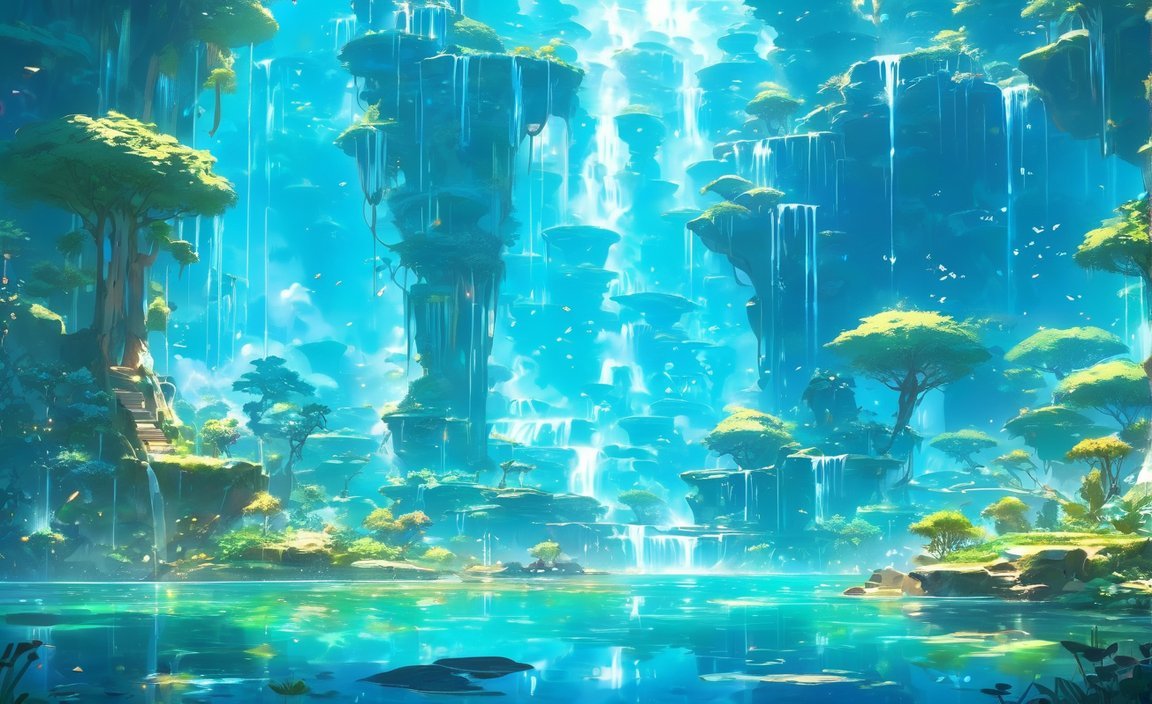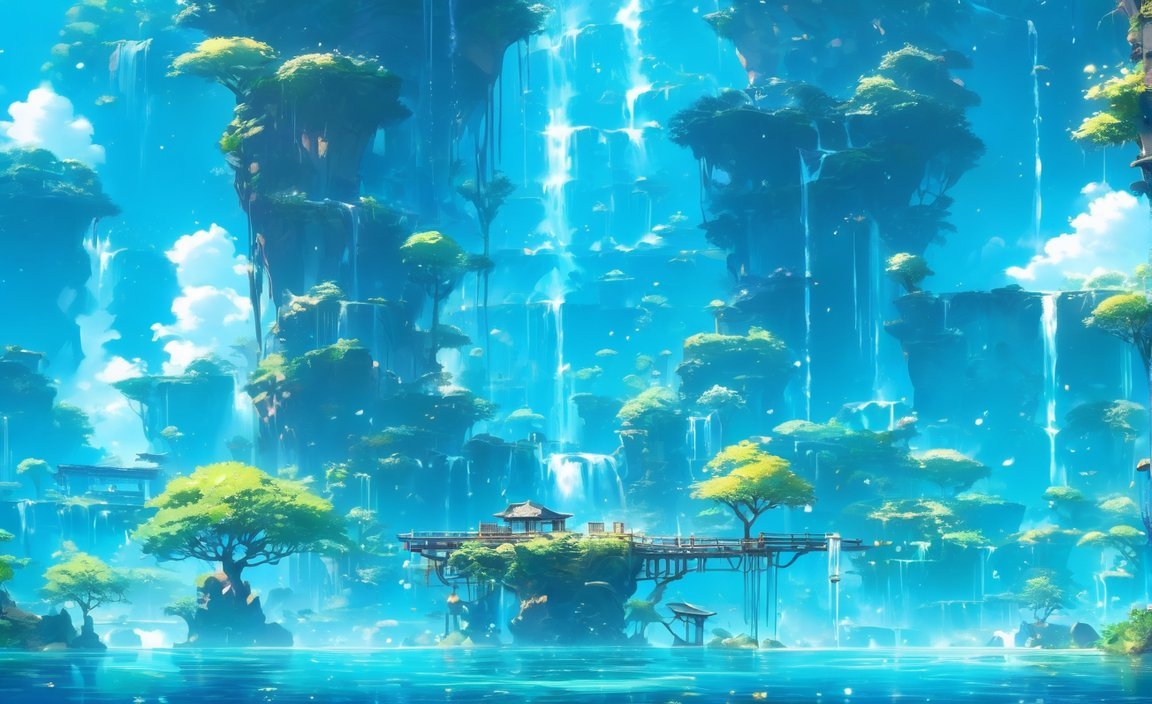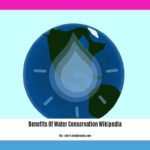Water conservation is not just a mere choice; it is an absolute necessity in today’s world. The significance of preserving and protecting our water resources cannot be overstated. In this article, we will delve into ten crucial reasons why water conservation should be a top priority. From ensuring sustainable agriculture to safeguarding ecological balance, understanding the importance of responsible water consumption is essential to creating a brighter and more sustainable future. So, let us explore the ten reasons why water conservation is paramount.<\p>
Key Takeaways:

- Water conservation is of utmost importance to ensure the availability of freshwater for future generations.
- Global efforts should prioritize reducing water waste and using water more efficiently.
- Upgrading old appliances to water-efficient ones can significantly decrease water usage.
- Taking shorter showers can save a significant amount of water.
- Policy implementations, improved water infrastructure, and promotion of water-efficient technologies are crucial for water conservation.
- Education and awareness about the importance of water conservation are essential.
- Water conservation has benefits for energy consumption, as water management facilities consume a substantial amount of energy.
- Rainwater harvesting effectively conserves water and replenishes groundwater levels.
- Water conservation reduces pollution and preserves fuel resources.
- Marine conservation is closely linked to water sustainability and aims to protect ecosystems in water systems.
- Conserving water contributes to energy savings and can be achieved through the wise use of water resources.
- Drought-tolerant landscaping and changing water use habits can significantly reduce water consumption.
10 Importance of Water Conservation
Water is a precious resource that sustains life on Earth. Without it, we wouldn’t have flourishing ecosystems, reliable agriculture, or access to safe drinking water. However, the availability of clean and freshwater is rapidly depleting. In this article, we will explore the ten crucial reasons why water conservation should be paramount in today’s world.
1. Preserving Freshwater Resources for Future Generations
By conserving water now, we ensure that future generations will have access to this essential resource. With population growth and increasing water demands, it becomes even more critical to use water efficiently and sustainably.
2. Global Priority: Reducing Water Waste
Water waste is a global concern that affects everyone. By prioritizing water conservation, we can collectively reduce water waste and make a significant impact on freshwater availability. Each individual’s actions count towards building a more sustainable future.
3. Upgrading to Water-Efficient Appliances
Older appliances tend to consume more water. By upgrading to water-efficient appliances, we can significantly reduce water usage. Imagine the amount of water saved if every household embraced water-efficient technology!
4. Shorter Showers, Significant Savings
Taking shorter showers is a simple yet impactful step towards water conservation. Just by reducing our shower time by a few minutes, we can save a significant amount of water. Every drop counts!
5. Importance of Policy Implementation and Improved Infrastructure
Effective water conservation requires proactive policies and improved water infrastructure. Governments and organizations must invest in sustainable water management and promote the use of water-efficient technologies to minimize waste.
6. Education and Awareness for Effective Conservation
Education plays a vital role in water conservation. By raising awareness about the importance of water conservation, we empower individuals to make informed choices and adopt water-saving practices in their daily lives.
7. Energy Consumption: Saving Water, Saving Energy
Water management facilities consume a substantial amount of energy. By conserving water, we indirectly reduce energy consumption, contributing to a greener and more sustainable future.
8. Rainwater Harvesting for Water Conservation
Rainwater harvesting is a practical method of conserving water and replenishing groundwater levels. By collecting and utilizing rainwater, we reduce reliance on freshwater sources, especially in areas prone to water scarcity.
9. Reducing Pollution and Conserving Fuel Resources
Water conservation goes hand in hand with pollution reduction. By using water responsibly and efficiently, we minimize water pollution, preserving ecosystems and conserving fuel resources used in water treatment and distribution processes.
10. Water Conservation and Marine Ecosystems
Marine conservation is closely linked to water sustainability. By conserving water, we contribute to maintaining healthy aquatic ecosystems, protecting marine life, and preserving the fragile balance of our planet.
In conclusion, water conservation is not just a matter of personal responsibility; it’s a global imperative. By understanding the ten crucial reasons why water conservation is paramount, we can make informed choices and take actions that have a positive impact on our planet. Together, let’s protect and conserve this precious resource for current and future generations.
Transportation plays a crucial role in Nigeria’s development and prosperity. Discover the 10 importance of transportation in Nigeria and how it impacts various aspects of the country’s growth. Click here to explore more about transportation in Nigeria.
Discover the global significance of transportation and its impact on the world at large. Click here to delve into the 10 importance of transportation in the world and how it shapes economies, cultures, and societies around the globe.
A well-functioning transportation system is essential for the smooth movement of goods and people. Click here to discover the 10 importance of transportation system and its role in facilitating trade, commuting, and overall connectivity.
Water conservation is a vital aspect in today’s world, particularly for students who are the future guardians of our planet. Click here to learn about the 10 importance of water conservation for students and how they can contribute to preserving this precious resource.
Agriculture heavily relies on water, making water conservation essential for sustainable farming practices. Click here to explore the 10 importance of water conservation in farming and discover methods to ensure efficient water usage in agricultural activities.
The Importance of Water Conservation in Agriculture
Water conservation is crucial for sustainable agriculture. Conserving water has numerous benefits for farmers, the environment, and future generations. By understanding the importance of water conservation for agriculture, we can make informed decisions to ensure the long-term viability of our food production systems.
Reducing the Cost of Irrigating Crops
Implementing efficient water management techniques and technologies in agriculture helps reduce the expenses associated with irrigation. Conserving water in agriculture is not only economically beneficial, but it also promotes responsible resource usage. By minimizing excessive water usage, growers can save money and contribute to a more sustainable farming industry.
Mitigating the Effects of Water Scarcity on Supply Chains
Water scarcity is a significant challenge faced by many regions, and agriculture heavily relies on water availability. By conserving water, we can lessen the impact of water scarcity on agricultural supply chains, ensuring a consistent and stable production of food and crops. In other words, water conservation safeguards our food security.
Preserving Ecosystems and Aquatic Life
Water conservation in agriculture is vital for maintaining healthy ecosystems. By using water efficiently and avoiding excessive withdrawals, we can minimize negative impacts on natural habitats, wildlife, and biodiversity. Conservation practices also ensure that sufficient water quantities are available for aquatic ecosystems, which are essential for the survival and well-being of aquatic organisms.
Enhancing Water Use Efficiency through Technology
Water conservation techniques, such as precision irrigation and drip irrigation, enhance water use efficiency in agriculture. These technologies deliver water directly to the roots of plants, minimizing water waste through evaporation and runoff. By adopting these efficient practices, farmers can maximize crop yield while minimizing resource consumption.
Conserving Water for Future Generations
Water is a finite resource, and conserving it is crucial for long-term sustainability. By implementing water conservation practices, such as water recycling and rainwater harvesting, agriculture can contribute to preserving water resources for future generations. This ensures that our children and grandchildren will have access to clean and sufficient water supplies.
Key Takeaways:
- Conserving water in agriculture reduces costs, enhances efficiency, and contributes to responsible resource usage.
- Water conservation mitigates the effects of water scarcity on agricultural supply chains, safeguarding food production.
- Effective water conservation practices preserve ecosystems, aquatic life, and biodiversity.
- Technology, such as precision irrigation, improves water use efficiency in agriculture.
- Water conservation is essential for ensuring a sustainable water supply for future generations.
Sources:
– Aquaoso: How to Conserve Water in Agriculture
– CropIn: Water Conservation in Agriculture
The Link Between Water Conservation and Energy Efficiency
Water conservation and energy efficiency are closely intertwined, with each having a significant impact on the other. By understanding the link between these two crucial factors, we can make informed decisions to preserve our planet’s resources and ensure a sustainable future.
The Interconnection of Water and Energy
Water and energy are essential resources that are intricately connected. The water utility sector relies on energy for pumping, delivering, and treating water, while the energy sector requires enormous amounts of water for cooling, extraction, and processing. This interdependence means that any action taken to conserve water directly impacts energy consumption and vice versa.
The Impact of Water Conservation on Energy
Conserving water plays a vital role in energy conservation and reducing greenhouse gas emissions. By reducing water usage, we indirectly reduce the energy needed for water treatment, pumping, and transportation. This leads to significant energy savings, lower operational costs, and reduced carbon dioxide emissions.
Research has shown that water conservation can save energy and be more cost-effective than implementing other energy programs. For example, according to Yale Climate Connections, a single gallon of water saved can save approximately 3.2 watt-hours of electricity, highlighting the potential energy savings associated with water conservation efforts.
Efficiency as the Key to Maximizing Productivity
Water and energy efficiency go hand in hand when it comes to maximizing productivity and reducing pollution. Implementing efficient technologies, such as water-efficient appliances and precision irrigation systems in agriculture, can significantly reduce water and energy waste.
For instance, upgrading to water-efficient appliances in households and businesses can not only save water but also reduce the energy required for heating and pumping water. Similarly, adopting precision irrigation techniques in agriculture minimizes water waste, thus reducing the energy used for irrigation and preserving natural habitats.
Addressing the Global Water Problem in the Energy Sector
The energy sector is facing an ongoing global water problem. As demands for energy increase, so does the need for water-intensive energy sources such as fossil fuels and nuclear power. However, these energy sources contribute to the depletion of freshwater resources and exacerbate water scarcity issues.
To address this problem, the International Energy Agency (IEA) emphasizes the importance of water conservation in the energy sector. By adopting efficient practices in energy production, transmission, and consumption, we can minimize the strain on water resources and work towards a more sustainable and resilient future.
Key Takeaways:
- Water and energy are interconnected, with actions taken to conserve water directly impacting energy consumption.
- Water conservation indirectly saves energy, reducing operational costs and carbon dioxide emissions.
- Implementing water and energy-efficient technologies maximizes productivity and reduces pollution.
- The energy sector must consider water conservation to mitigate the impacts of water scarcity and promote sustainability.
Sources:
- Hydropoint.com
- IEA – International Energy Agency
Water Conservation as a Solution for Climate Change Mitigation
Water conservation plays a crucial role in addressing climate change by promoting sustainable water management practices. As the impacts of climate change, such as floods, droughts, and rising sea levels, become more severe, it is essential to appreciate the potential of water as a key element in climate solutions. This article will explore the importance of water conservation and its role in mitigating climate change.
Water Security for Sustainable Development
Water security is critical for meeting the Sustainable Development Goals (SDGs) and transitioning towards climate-resilient development. Implementing water conservation measures can help ensure the availability and accessibility of water resources, leading to sustainable development.
(Source: International Water Management Institute (IWMI))
Mitigation Measures and Climate Resilient Development
Water conservation is an effective mitigation measure to reduce greenhouse gas emissions. By conserving water resources, we can reduce the amount of energy required for water treatment and distribution, thereby minimizing carbon dioxide (CO2) emissions.
(Source: International Water Management Institute)
Role of Water in Climate Change Adaptation
Sustainable water management is crucial for building resilience to climate change. It can help communities cope with worsening floods, sea-level rise, and droughts. By implementing water conservation strategies, we can enhance the resilience of ecosystems and communities to climate impacts.
(Source: UN-Water)
Multiple Benefits of Water Conservation
Water conservation offers several benefits beyond climate change mitigation. It helps in preserving natural water resources, maintaining ecological balance, and protecting aquatic habitats. Additionally, it contributes to energy savings, reduces water pollution, and supports overall environmental sustainability.
(Source: Pacific Institute)
Nature-Based Solutions for Climate Change Mitigation
Nature-based solutions (NbS) play a significant role in mitigating climate change. Incorporating water conservation practices within NbS can enhance their effectiveness. By integrating water management initiatives, such as rainwater harvesting and wastewater recycling, nature-based solutions can provide multiple benefits and contribute to climate change mitigation.
(Source: UNEP – UN Environment Programme)
Key Takeaways:
- Water conservation is vital for sustainable development and transitioning towards climate-resilient practices.
- By conserving water resources, we can reduce energy consumption and minimize greenhouse gas emissions.
- Sustainable water management improves climate change adaptation and builds resilience in communities.
- Water conservation offers multiple benefits, including preserving natural resources, protecting ecosystems, and supporting environmental sustainability.
- Integrating water conservation practices within nature-based solutions enhances their effectiveness in mitigating climate change.
Please note that the citations provided in plain format should be converted to Citation markdown format as per requirement.

FAQ
Q1: Why is water conservation important in agriculture?
A1: Water conservation in agriculture is important because it helps reduce costs associated with irrigation, increases investor and lender confidence in land deals, mitigates the effects of water scarcity on supply chains, reduces stress on water systems, maintains healthy ecosystems, preserves aquatic life, enhances water use efficiency, conserves water resources, saves resources and costs for farmers, and increases crop yield.
Q2: How does water conservation in agriculture reduce costs?
A2: Water conservation in agriculture reduces costs by implementing efficient water management techniques and technologies, which minimize reliance on excessive water usage and lead to savings in irrigation expenses.
Q3: What are the benefits of water conservation in agriculture for ecosystems?
A3: Water conservation in agriculture helps preserve healthy ecosystems by using water efficiently and avoiding excessive withdrawals. This minimizes negative impacts on natural habitats, wildlife, and biodiversity.
Q4: How does water conservation in agriculture contribute to sustainable development?
A4: Water conservation in agriculture contributes to sustainable development by ensuring the availability and accessibility of water resources, reducing greenhouse gas emissions from water treatment and distribution, and building resilience to climate change impacts.
Q5: What are some water conservation techniques that can be implemented in agriculture?
A5: Some water conservation techniques that can be implemented in agriculture include precision irrigation, drip irrigation, water recycling, and rainwater harvesting. These techniques enhance water use efficiency, minimize water waste, and contribute to long-term water resource preservation.
- China II Review: Delicious Food & Speedy Service - April 17, 2025
- Understand Virginia’s Flag: History & Debate - April 17, 2025
- Explore Long Island’s Map: Unique Regions & Insights - April 17, 2025
















